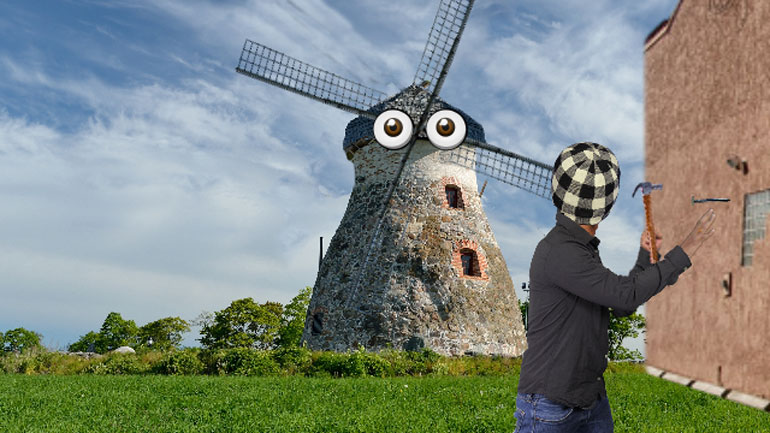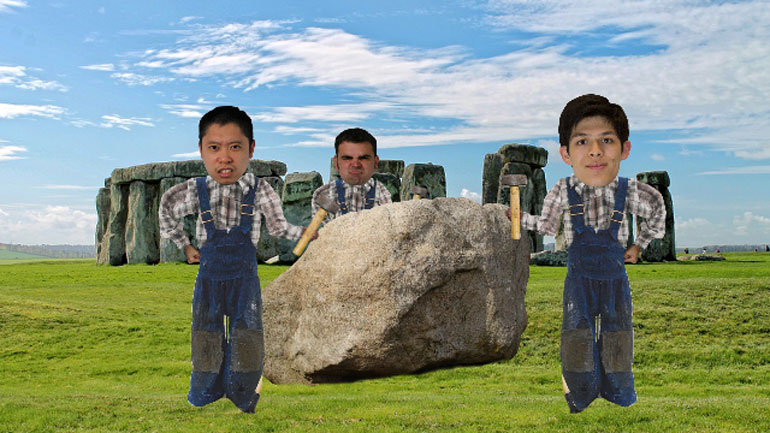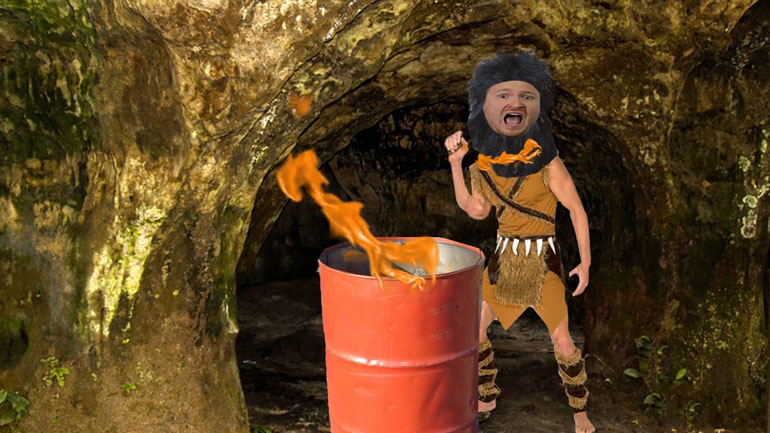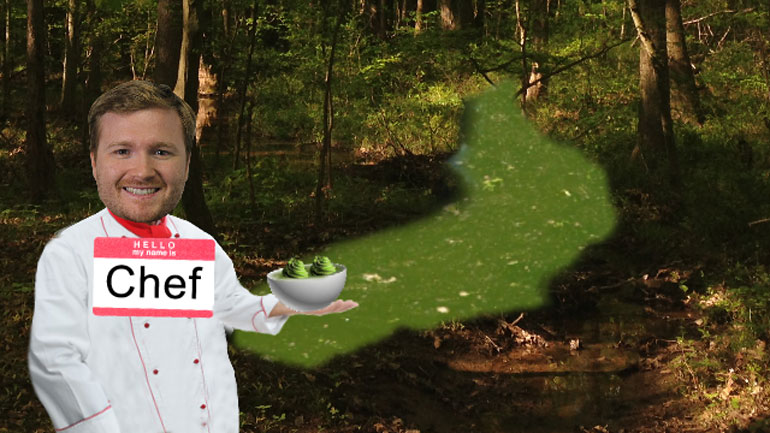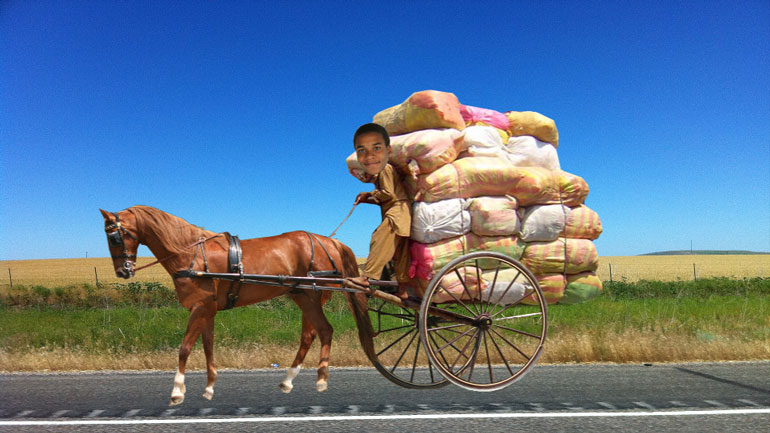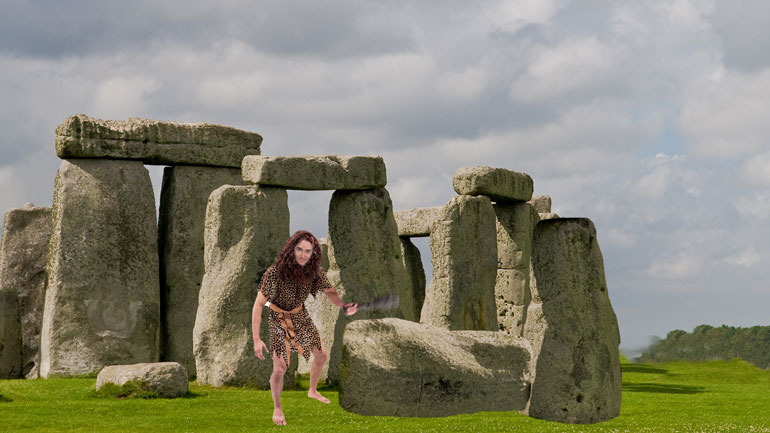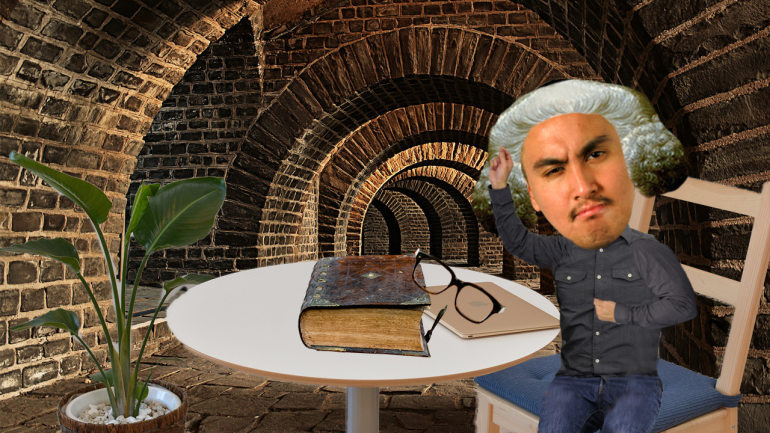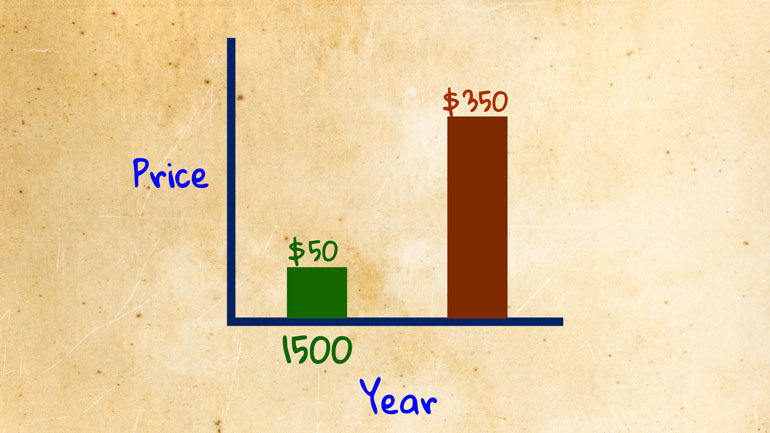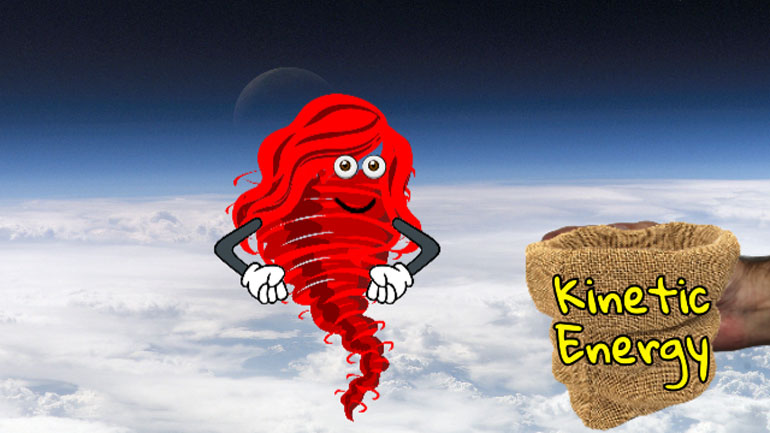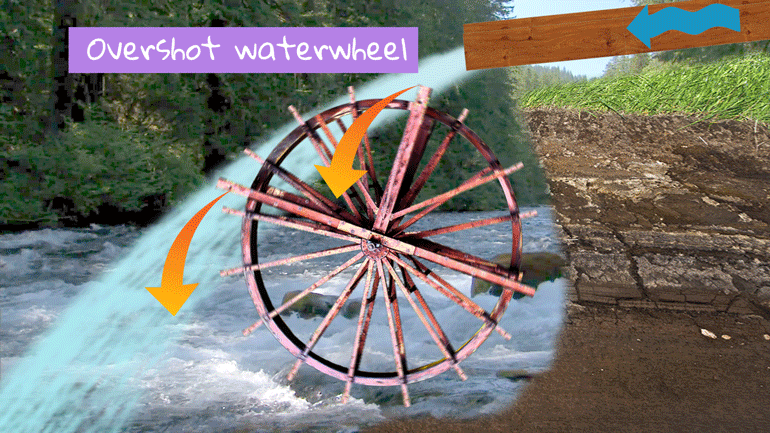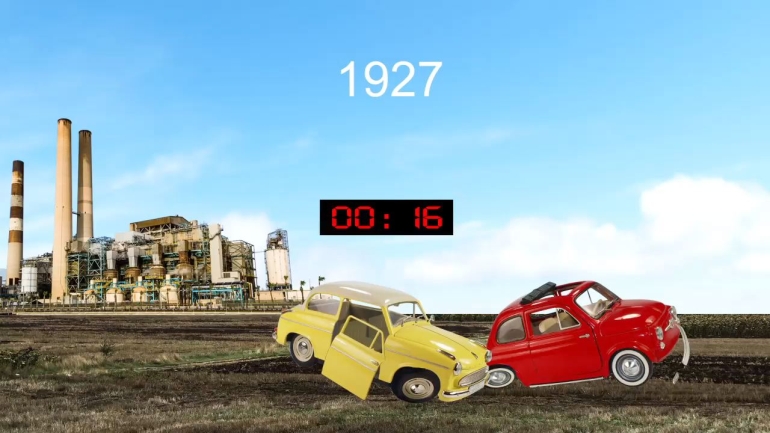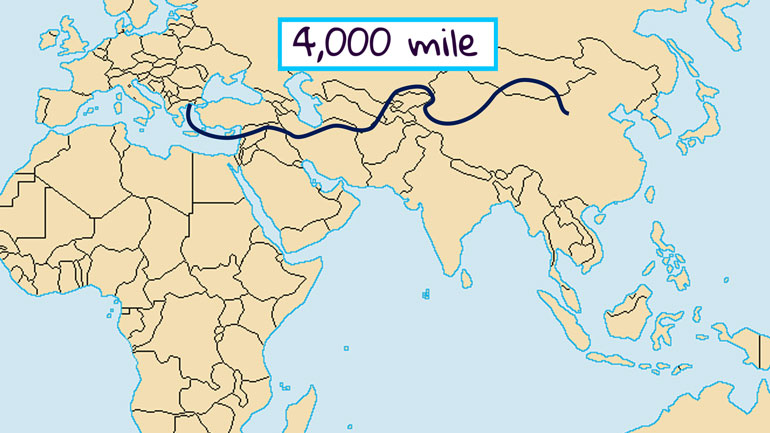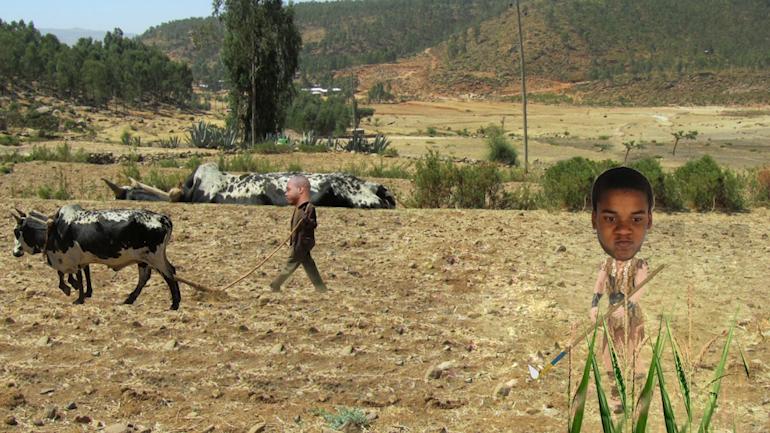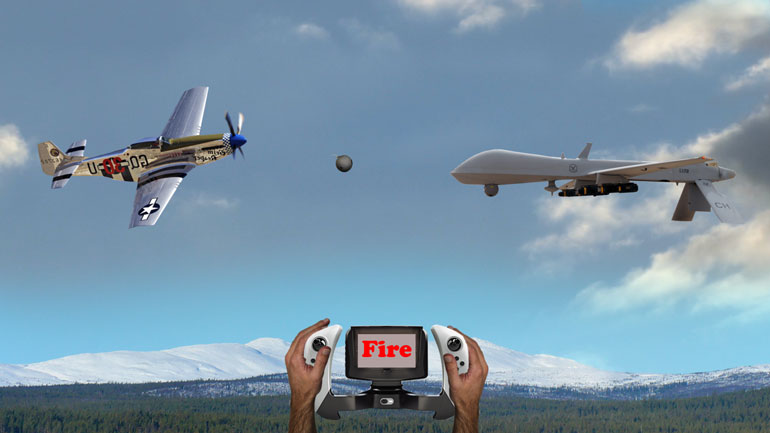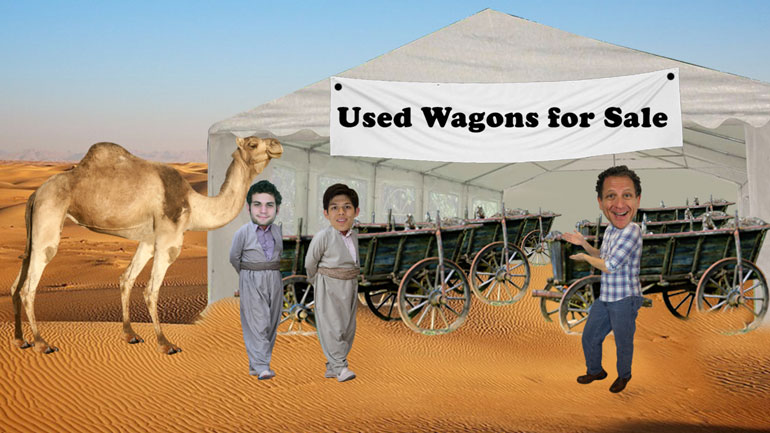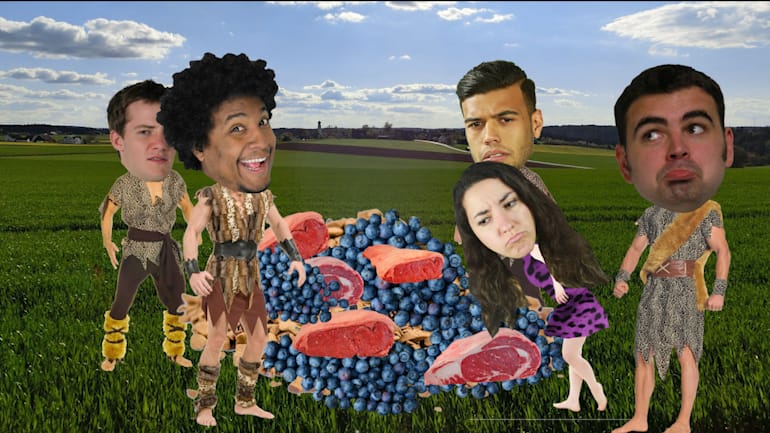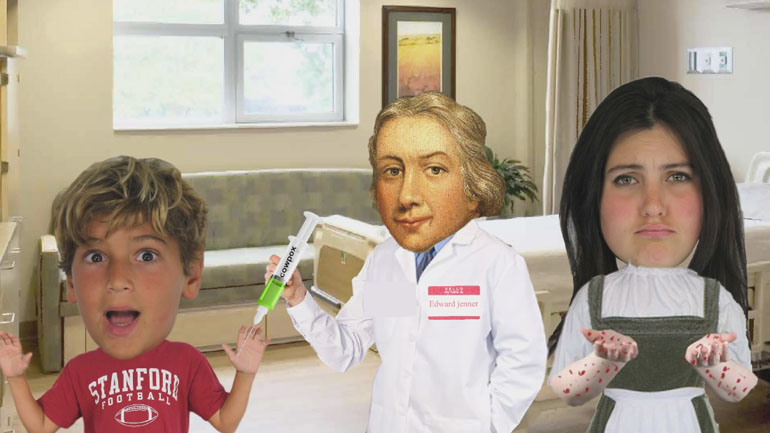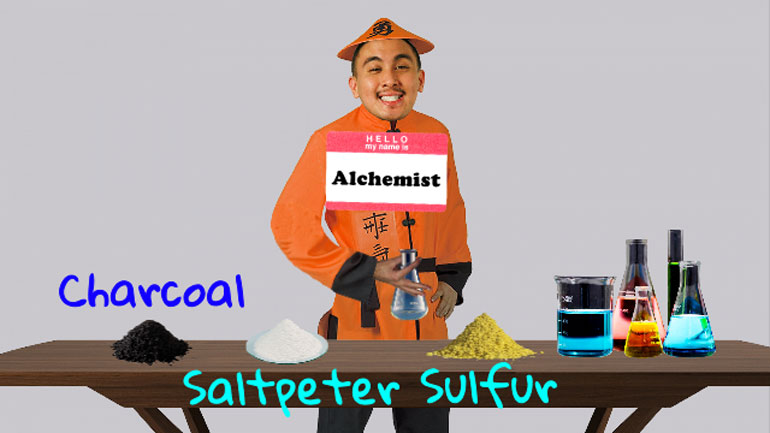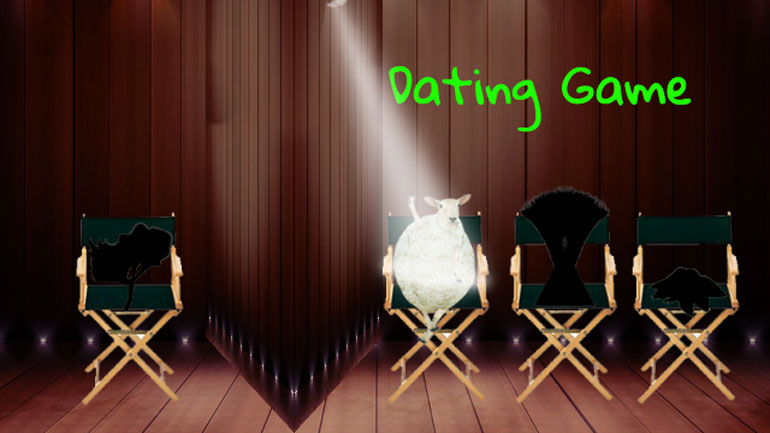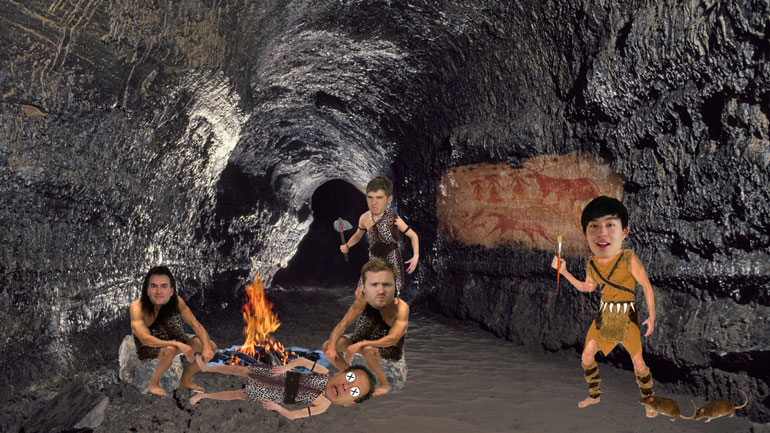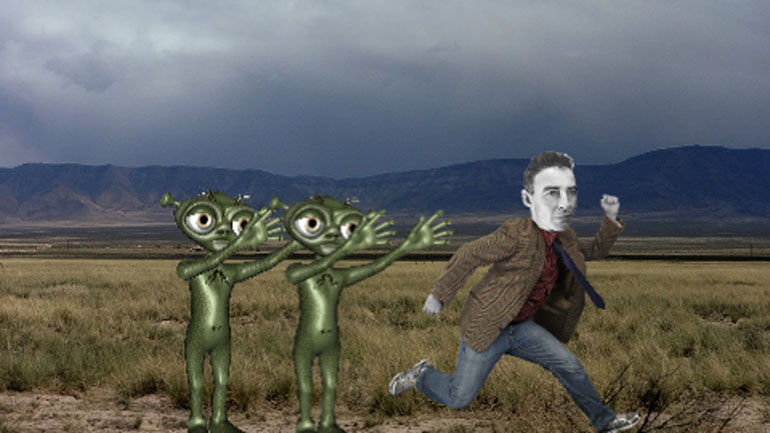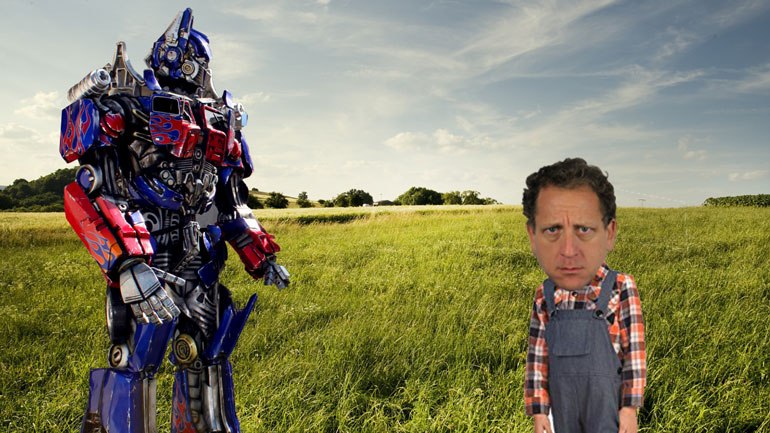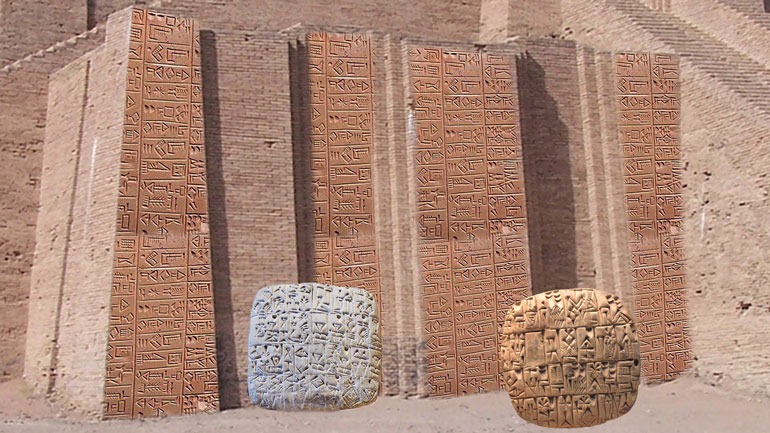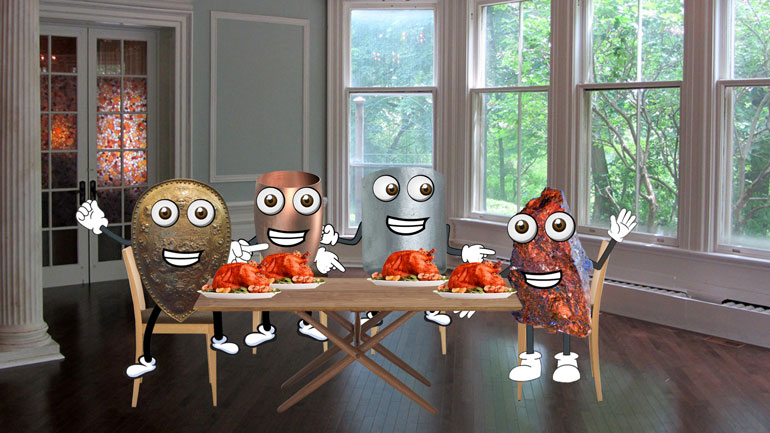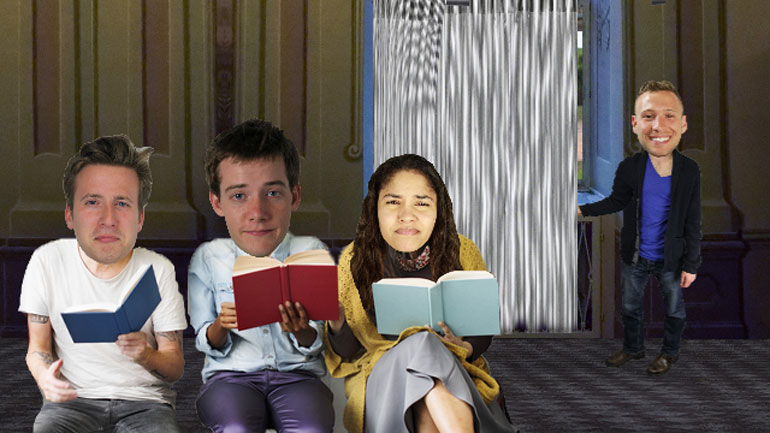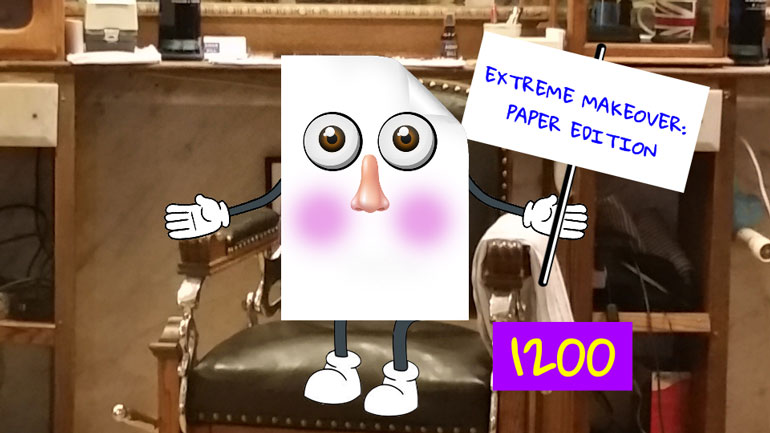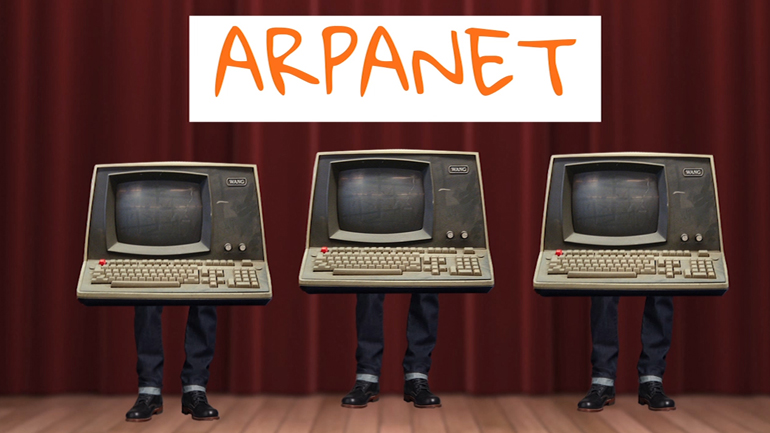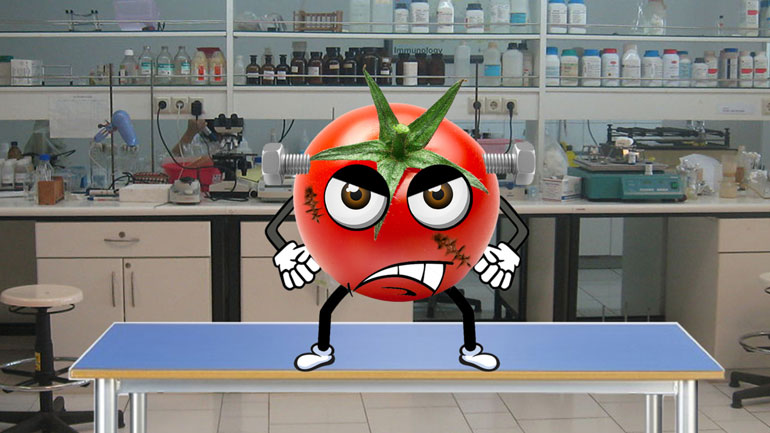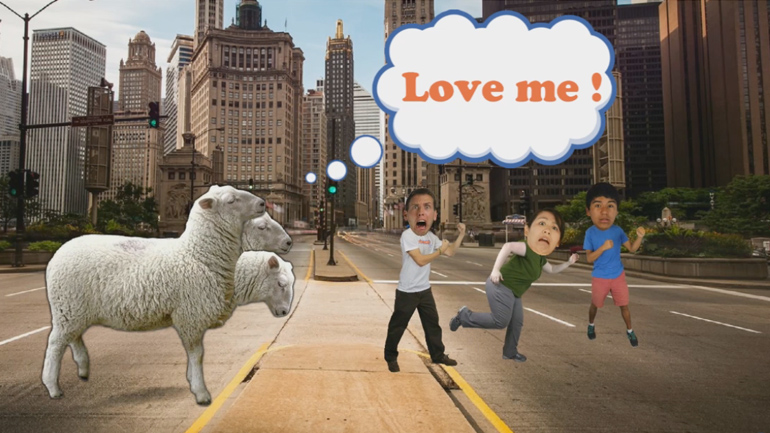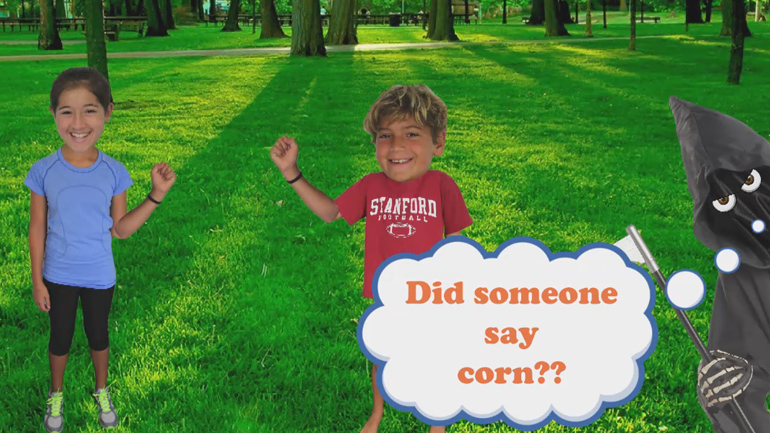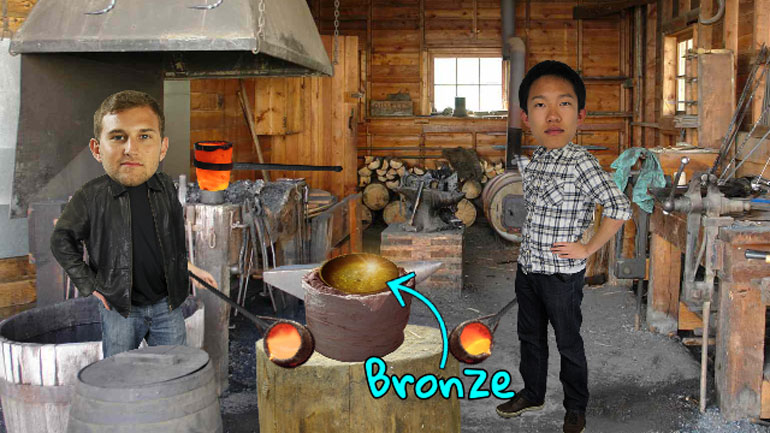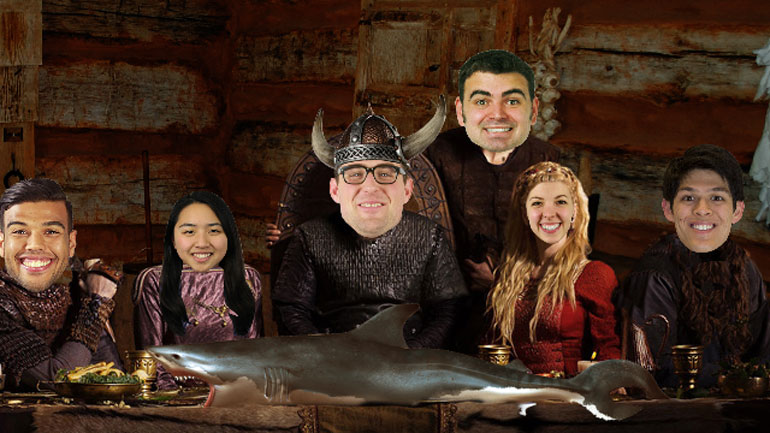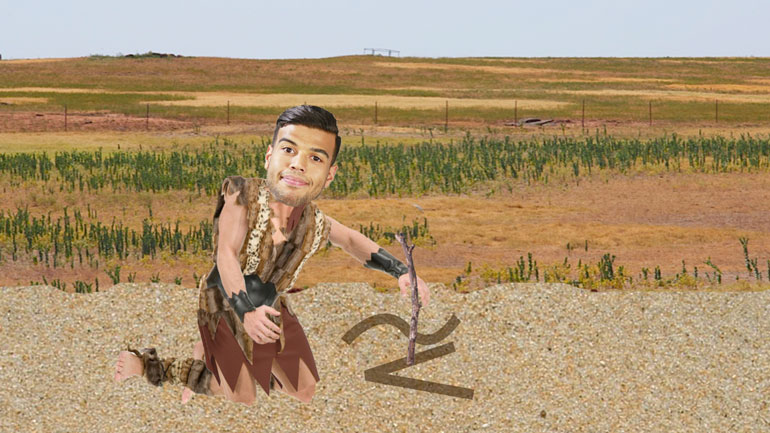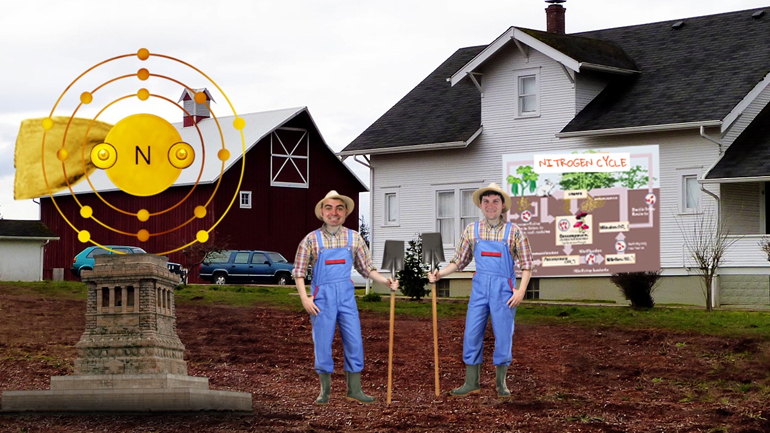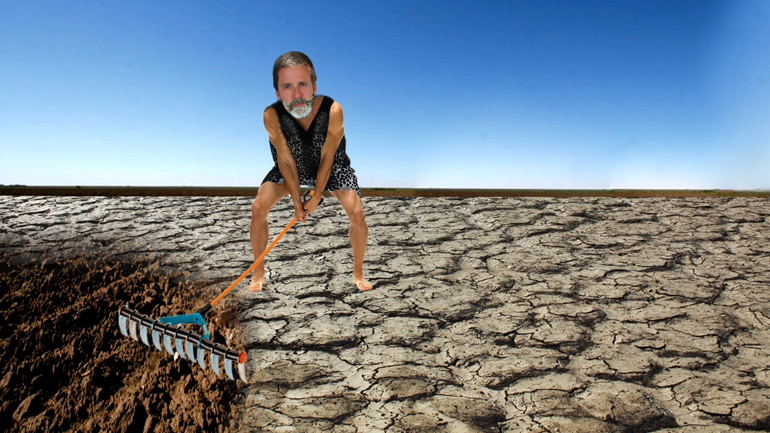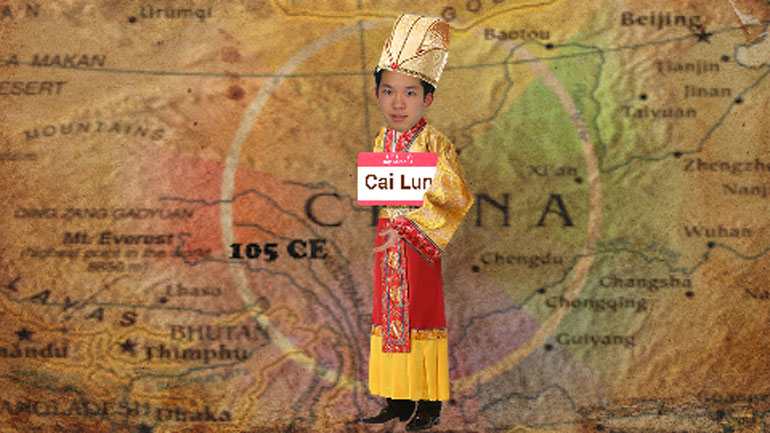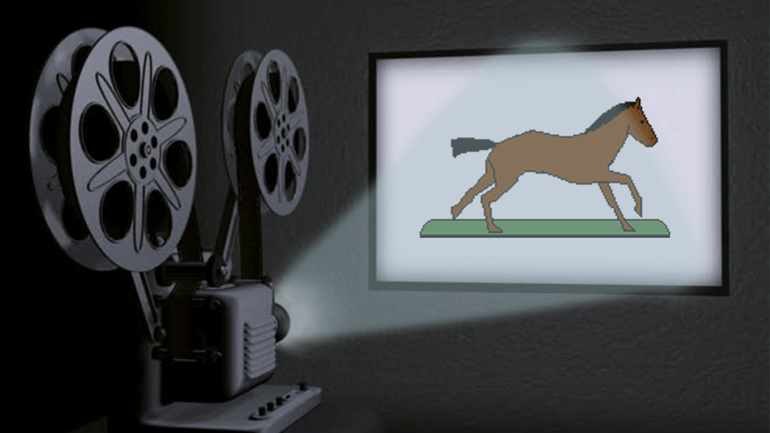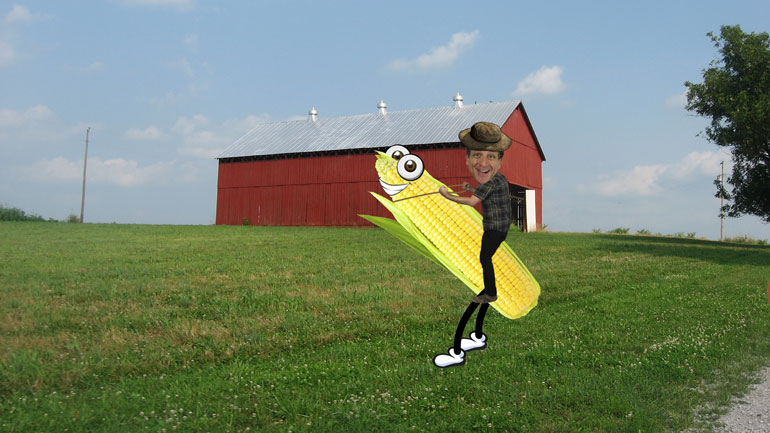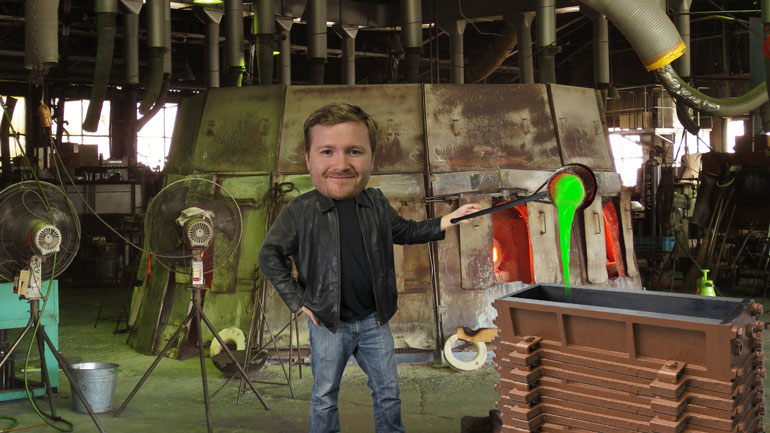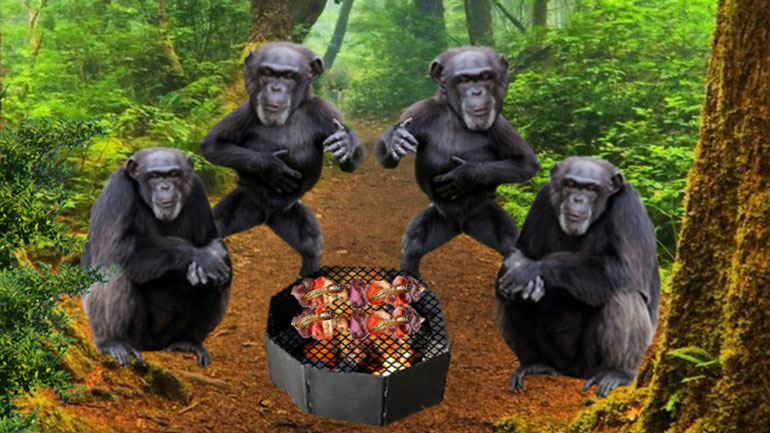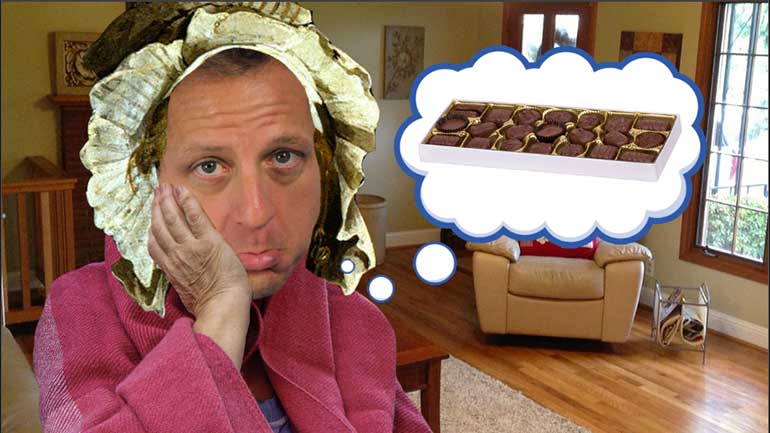ShmoopTube
Where Monty Python meets your 10th grade teacher.
Search Thousands of Shmoop Videos
History of Technology Videos 160 videos
What's the deal with wind? And why does it have to be so...windy?
How did people move stuff around before the wheel was invented? More importantly, why didn't they take a break for a few minutes from moving stuff...
History of Technology 5: Clothing and the Raw Materials 30 Views
Share It!
Description:
Today, we're going to learn about raw materials used to make clothing. Word to the wise? If you're wearing anything silk, you might want to take it off...things are about to get gross.
Transcript
- 00:03
If it were up to us, humans would never have left the tropical zones. [Man drinking from a coconut]
- 00:07
We would just hang out in hula skirts, strum a ukulele, and sip drinks out of coconuts. [Woman drinks out of a coconut]
- 00:11
…That's what all tropical zones are like, right?
- 00:14
Tragically, the course of history isn't up to Shmoop. [Snake falls on a man]
- 00:18
If it were, history would have a lot less human misery and depressing stuff, and a lot
Full Transcript
- 00:21
more burritos and movie nights. [Woman on a sofa eating popcorn]
- 00:24
Anyway…as lovely as it would've been to stay in a tropical paradise, humans did leave
- 00:28
the equator and start wearing clothes. [Topless people running into the forest]
- 00:30
And if that doesn't sound like a good thing to you, you try going outside to grab your
- 00:35
paper and seeing your seventy-two year old neighbor doing naked yoga. [Naked neighbor on the lawn]
- 00:39
Then we'll see how you feel about clothing.
- 00:41
Anyway, let's leave Larry to his yoga…because it's time to study the hows, whys, and whens
- 00:46
of textile history.
- 00:48
So, if ever sat down at a loom to weave clothes and thought, "gee, this is a pain in the butt?" [Woman sat at a loom]
- 00:55
Yes?
- 00:56
Then might we suggest a padding loom chair? How about that...
- 00:59
Okay, the real answer is (laughs) you've probably never thought about that.
- 01:02
That's because almost all the weaving in the world is done by gigantic industrial looms [Big looms in an industrial mill]
- 01:07
now, instead of the painstaking labor of a single human. [Woman working on a loom]
- 01:11
And when we say "a single human," we mean women. [Woman working on a loom in the desert]
- 01:14
In places like medieval Europe, women spent all the live-long day weaving.
- 01:18
But, let's take a step back. [Footage of people walking around in reverse]
- 01:20
How do we get from plant or animal…to fancy cocktail dress? [Woman turns a plant into a dress]
- 01:23
We can't exactly ask a sheep to remove his fleece and… [Sheep throws fleece onto a man and it turns into a shirt]
- 01:27
Bam!…
- 01:28
We have a pea coat.
- 01:29
So what kinds of raw materials were people using to make cloth?
- 01:32
Y'know, other than the hides of dead animals, which is kind of icky. [Prehistoric man with smelly armpits]
- 01:36
Well, four of the biggest, oldest, and most important sources of fiber were…
- 01:40
Wool…
- 01:41
In other words, sheep.
- 01:43
Sheep were domesticated forever ago, but they were only bred for maximum fluffiness about [Sheep in a field]
- 01:47
10,000 years ago.
- 01:49
That's when people started pulling out chunks of their fur and wearing it. [Farmer sheering a sheep]
- 01:54
One advantage of wool was that it was fairly easy to make into thread.
- 01:57
It was also plentiful because people already had sheep for milk and meat. [Man milking a sheep]
- 02:01
Also, it was super warm even when it got wet.
- 02:04
Plus, we got to wear lovely animal hides without having to deal with the, uh, flesh factor. [Woman wearing a wool jumper]
- 02:11
Linen is probably one of the oldest plant-based fibers used to make clothes.
- 02:15
It involves domesticating the flax plant, then harvesting the fine fibers to weave into [Harvesters in a field]
- 02:22
linen cloth.
- 02:23
Folks have found fibers that are 36,000 years old, but perhaps the most famous old fibers [Neatly folded piles of linen]
- 02:29
were used around 8,000 BCE.
- 02:31
Egyptian mummies were wrapped in linen… [Someone wrapping a mummy]
- 02:34
…not toilet paper as many Halloween costumes falsely advertise. [Kid wrapped up in toilet paper]
- 02:38
Silk was a major step up.
- 02:40
Ooh, we love us some silk.
- 02:42
So nice and soft, right? [Woman rubbing a piece of silk on her face]
- 02:44
Where could such a heavenly fabric come from?
- 02:47
…Worms.
- 02:48
Well, larvae, really…which somehow sounds grosser… [Woman is grossed out and chucks the silk away]
- 02:52
Anyway, silk is made by the larvae of silk moths.
- 02:55
They form a cocoon of silk protein around themselves for protection… [Larvae weaving silk]
- 02:59
…then humans come along, snatch the cocoon, and boil a few million of them together to
- 03:04
get silk fiber.
- 03:05
Maybe they should've tried chainmail. [Worker boiling down cocoons]
- 03:08
The Chinese were the first to figure that out, around 4,000 BCE. [Chinese workers picking out silk cocoons]
- 03:12
We're pretty sure there are still "Wanted" posters up in silk moth homes nationwide. [Angry looking silk moth]
- 03:18
And last but certainly not least, cotton was and is a biggie.
- 03:22
Cotton probably originated in several different places around the world… [Countries lighting up green on a map]
- 03:25
But the basic idea was the same: take the fluffy part of a cotton plant, spin it into
- 03:30
thread, and it makes much softer, nicer fabric than wool. [Man chucks away wool jumper and puts on a cotton jacket]
- 03:34
It's also a lot cheaper to grow vast fields of cotton plants rather than vast herds of [Cotton crop appears in a field]
- 03:40
sheep.
- 03:41
So yup, cotton became one of the most popular textiles in the world by the modern age. [Cotton hung in a factory]
- 03:45
Maybe we can show 72 year old Larry this video and convince him to give it a shot. [Naked neighbour out on the lawn again]
Related Videos
GED Social Studies 1.1 Civics and Government
When you're about to marry the love of your life, not many things could stop you. However, finding out that your future hubby is keeping his crazy...
Here at Shmoop, we work for kids, not just the bottom line. Founded by David Siminoff and his wife Ellen Siminoff, Shmoop was originally conceived...
ACT Math: Elementary Algebra Drill 4, Problem 5. What is the solution to the problem shown?
